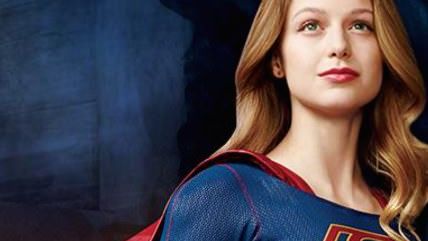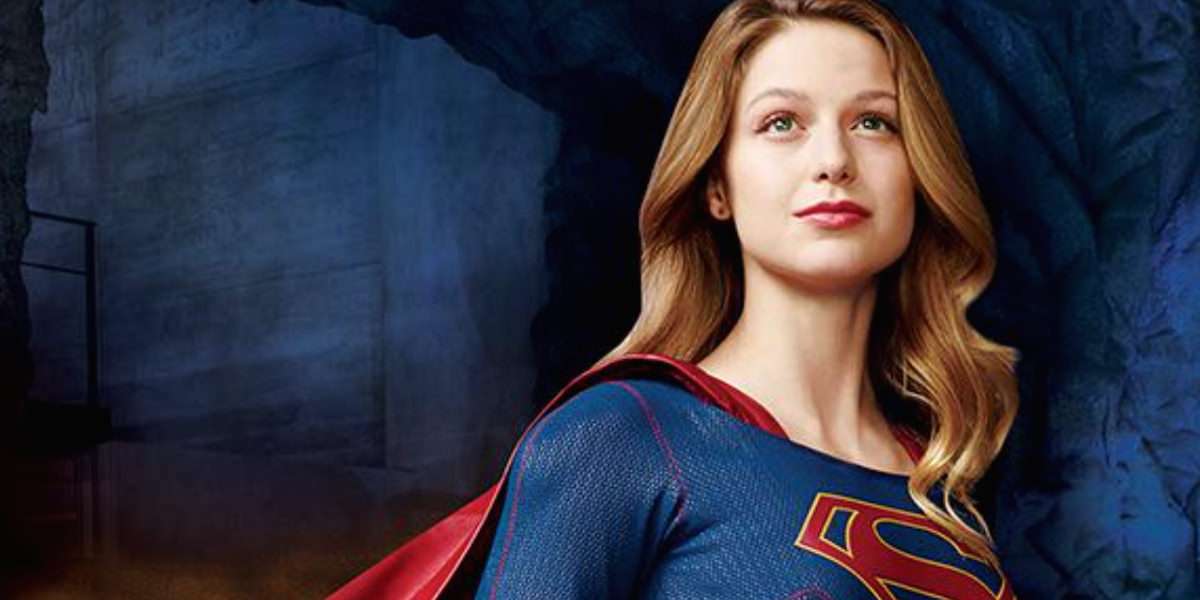Supergirl, Wicked City Round Out TV Premiere Season
Wicked City offers libertine noir; Supergirl crash lands.

- Supergirl. CBS. Monday, October 26, 8:30 p.m. EDT.
- Wicked City. ABC. Tuesday, October 27, 10 p.m. EDT.
We've reached the last meaningful week of fall broadcast-season premieres, though a couple of stragglers will stagger in next month. I wouldn't go so far as to say this week's TV is Dostoevskian (maybe Pussy Riot-ish), but there is definitely a whiff of crime and punishment in the air. One network is giving you a feminist superhero, and the other a misogynist murderer. And one is creepily engaging, and the other feels like 30 whacks, Lizzie Borden allusion definitely intended.
The more interesting—and by far the more deviant—of the pair is ABC's intricately plotted Wicked City, a nostalgic look back at a Los Angeles where AM radio still spoke rock and roll, and the city was awash in cheap cocaine, free sex, and sociopathic serial killers.
Wicked City is set in 1982, at a time when the judicial proceedings against the accused Hillside Strangler—the nom de headline of what had turned out to be a pair of men collaborating on the rape, torture and murder of at least 10 girls and young women—were all over the news. Now some of the cops who worked on the five-year Hillside Strangler case believe a copycat serial killer is at work.
A kind of libertine noir in which damaged-goods characters, instead of throwing back shots of rye in dark cocktail lounges, slither through mobs of coke whores prancing around to the strains of "Girls Just Want to Have Fun," the show propels three sets of characters on a lethal collision course.
A pair of bickering detectives, Jack Roth (Jeremy Sisto, Six Feet Under) and new partner Paco Contreras (Gabriel Luna, True Detective), spend almost as time arguing about whether the victims are human tragedies or tickets to promotion. Scuffling freelancer Karen McClaren (Taissa Farmiga, a memorably flinty young witch in the second season of American Horror Story) will do anything, even troll bars as a potential homicide victim, to break into Rolling Stone. And the killer himself, Kent Granger (Ed Westwick, Gossip Girl)—a complex blend of narcissist, chameleon and stone sadist—is surprised when one of his potential targets, Betty Beaumontaine (Erika Christensen, Parenthood) turns out to be a potential Bonnie to his Clyde.
Wicked City's pilot was written by producer-creator Steven Baigelman, who has been oddly inactive since writing and directing Feeling Minnesota, an amusingly fractured criminal-romantic-triangle comedy, nearly two decades ago. And Wicked City shows definite signs of rust, especially in the casting and dialogue of the two detectives, whose chemistry produces more noxious fumes than sparks.
Yet the show's intricate plotting and its complex female characters—the desperately ambitious McClaren, the angel-faced, black-hearted Beaumontaine—make it fascinating despite its flaws. And the easy, sleazy side of the 1980s, where anything goes as long as it's mixed with enough cocaine (the bemused reaction of one club-hopper, after obligingly playing the dormant side of a necrophiliac fantasy: "That was weird, but kind of amazing"), makes a perfect milieu for a cynical crime drama. As Dick Clark was just about through saying by 1982, Wicked City has a good beat and you can dance to it—I'd give it an 85.

That would be another plague of the 1980s—grade inflation—if applied to CBS' Supergirl, a superhero comic strip set in a fallopian jungle of sibling and office bitchery. Melissa Benoist (one of the few bright spots in the latter, brain-damaged seasons of Glee) stars as Kara, Superman's cousin, whose own super-power potential has been suppressed by a glass ceiling imposed by her uptight foster family.
Instead of a crime-busting superhero like her cousin, or even his cover life as a newspaper reporter able to bedazzle editors with 200-word-a-minute keyboard skills, Kara is just an personal assistant to a she-wolf-of-the-SS editor (Calista Flockhart, very much channeling Meryl Streep in The Devil Wears Prada). Her life pretty much consists of cold pizza, getting dumped by blind dates, and bosses who say stuff like "It's not that I don't see your frown, it's just that I don't care enough to ask why it's there."
Alas, when Kara breaks cover to save her foster sister from death in a plane crash, she discovers that a patriarchal world won't tolerate super-strong women. The news media ding her for everything from her messy work habits (GUARDIAN ANGEL OR HUMAN WRECKING BALL?) to her dowdy costume. Even the foster sister she saved, whose secret superhero identity is apparently Ungrateful Bitch Girl, chides her: "What if people figure out who you are?"
Whether this is all tongue in cheek or Supergirl is intended as the millennial equivalent of a Helen Reddy record—equal pay for equal superheroes!—I could never quite figure out. Regardless, Supergirl is at least tolerable in its guise of a cockamamie feminist fable. But as the hour progresses and it flaunts its comic-book side (naturally, some supervillains have followed her to Earth, and even more naturally, there's a secret anti-extraterrestrial police force that wants to shut her up, because "nothing says 'covert operation' like a flying woman in a red skirty"), its essential nerdiness—the preferred PC synonym for "juvenile stupidity"—becomes overwhelming. Characters knocked across the room in fist-fights! Buildings toppled by errant body slams! Over and over! Until you want to scream! And beg for the sweet release of death! Or some kryptonite bullets.


Show Comments (18)